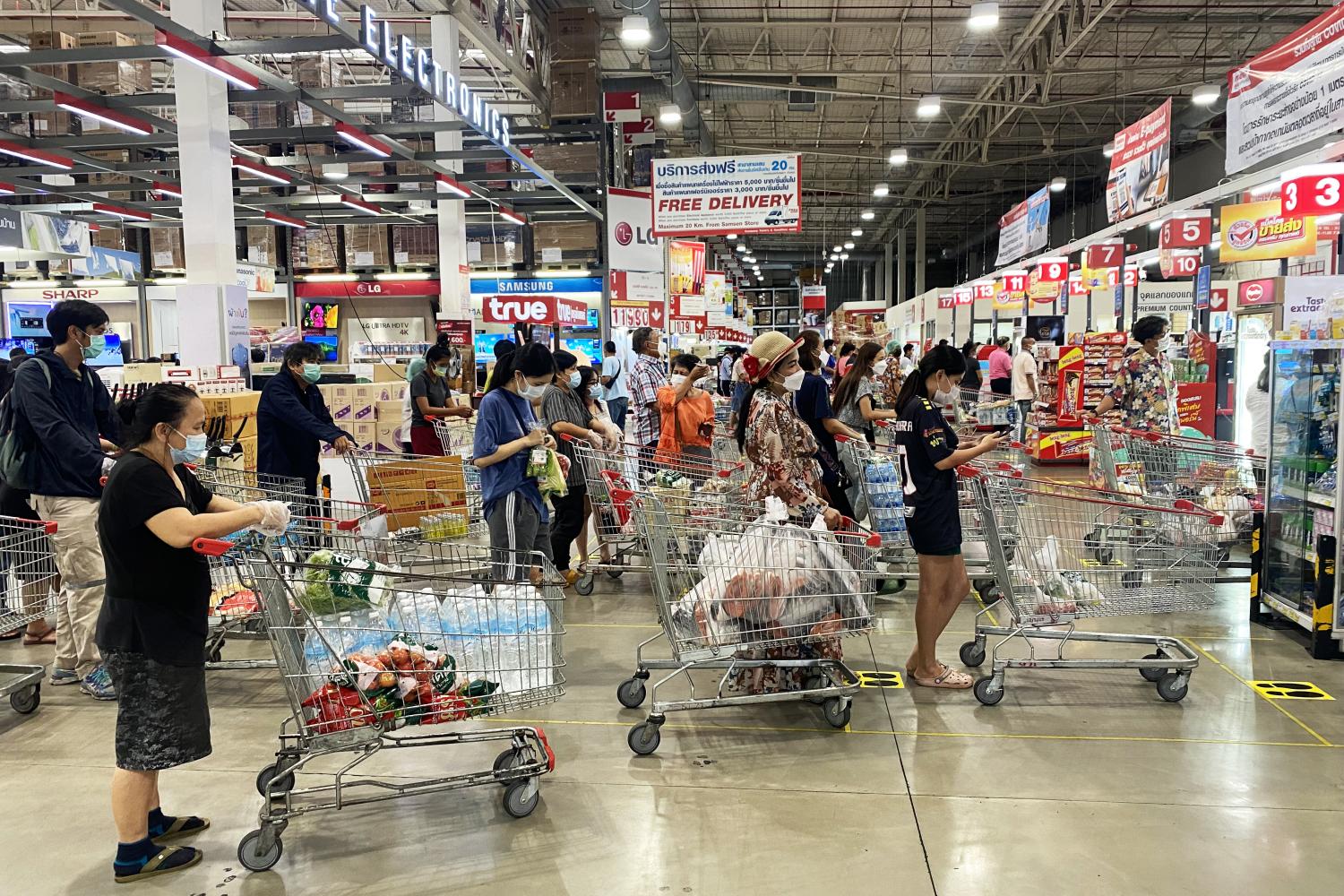
Stockpiling of essential goods at home appears to be on the rise as a result of the ongoing lockdown, curfew measures and daily reports of rising Covid-19 infections and death tolls.
Operators of supermarkets, hypermarkets and cash & carry stores report shoppers buying large volumes of daily goods such as packed rice, cooking oil, instant noodles, fish sauce, tissue paper and drinking water since last month, leading to shortages on the shelves.
"We've witnessed long queues of shoppers from morning to evening at our store over the past few weeks. This phenomenon occurred at the same time as a flood of purchase orders via an online channel," said a female employee at a Makro cash & carry store in the Charan Sanitwong area. She said in-demand items included cooking oil, seasoning products, meat and frozen foods, and other household items such as detergent and cleaning products.
Pun Paniangvait, manager of the President office of SET-listed Thai President Foods (TFMAMA), the maker of Mama instant noodles, said retailers ordered high volumes of Mama instant noodles during July and August.
Sales of Mama instant noodles in July grew by more than 10% above average for the month, with the same growth momentum anticipated for August, said Mr Pun.
"Consumers have been stocking up during the daily reports of high infection rates and infection spread to the factories and distribution centres of some retailers," he said. "People are going out less, but the panic buying is not yet at the same level as the first wave of the pandemic."
Mr Pun said the company raised production capacity by 10% to accommodate the surge in demand. He said the demand spike also stemmed from more home isolation and purchases in large quantities for donations by charity groups.
Suroj Lamsam, chief executive and president of Loxley Plc, said trade operators ordered more goods such as packed rice, cooking oil, canned fish and fish sauce products from a Loxley Group trading company last month.
"It may be because more people are staying home, but the surge in demand is yet to match the first wave," Mr Suroj said.
He said with several retailers' distribution centres temporarily closed due to infections, retailers have increased orders from suppliers to manage their inventory more efficiently.
Supawut Chaiprasitkul, vice-president of supermarkets and food at The Mall Group Co, said more fresh products and ready-to-cook items have been sold at its supermarkets in recent weeks.
"We also see a trend of stocking up on essential goods. Some products are out of stock because factories were closed due to infections," he said. "People are less panicked than the first wave, but they are growing concerned about the length of the lockdown and curfew measures."
Mr Supawut said product shortages have been occurring since the middle of July, when infections rates worsened and the lockdown and curfew measures were extended. This trend is expected to continue if the infection rate does not decline and shoppers remain wary about the government's vaccine distribution plan, he said.
Wichai Benyadilok, first executive vice-president of commercial operations at Big C Supercenter Plc, said the company increased its inventory of necessary goods at all Big C stores by 30-40% to ensure adequate supply after customer demand rose in recent weeks. Big C is also working with suppliers and its distribution centres to manage its inventory more efficiently.